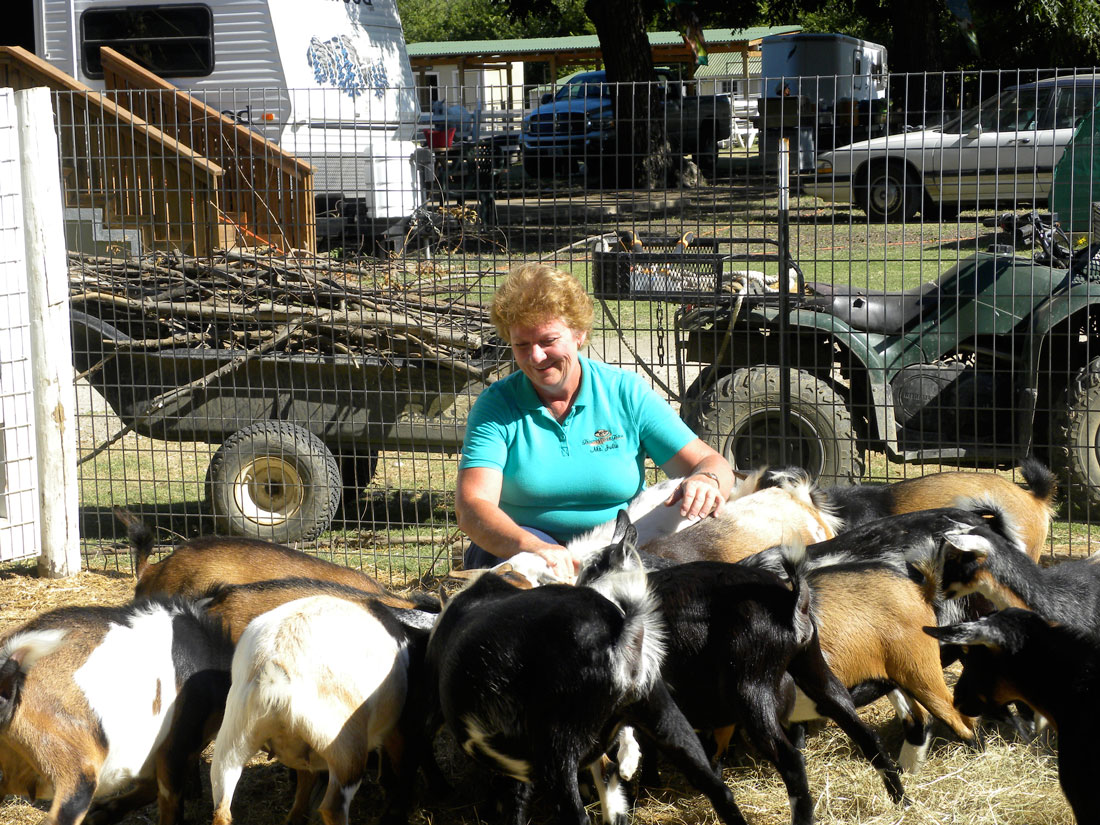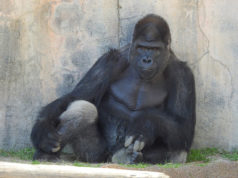Mary Kelleher and her neighbors on Randol Mill Road in East Fort Worth thought they had discovered the causes behind the severe flooding problems on their land over the last two years — gas drilling activities, in the form of a pipeline owned by one company and a well site and access road owned by another.
This week, however, a city official said the companies might be off the hook for the most part, in both instances. Engineering studies by the pipeline company, Enterprise Products Partners, and the well site owner, Chesapeake Energy, show that those installations contributed little or nothing to the flooding that, in one case, left Kelleher’s land under water for weeks.
Both companies are still dealing with permit violations. Enterprise never got a city permit for the 30-inch pipeline it laid near Kelleher’s low-lying property. In the other case, Chesapeake is trying to remedy permit violations committed by Dale Resources, the company that drilled the well and built the access road to the pad site in 2005, which Chesapeake bought two years later.
Problems for Kelleher began when Hurricane Hermine reached North Texas in 2010, leaving her property near the Trinity River swamped for eight weeks. Farm animals, unable to reach higher ground, drowned by the dozens.
The property owners knew their land was in the floodplain and were used to getting some high water occasionally. In the last few years, however, they maintain that flooding has been much worse and more frequent.
At the time, Kelleher charged that a major reason the floodwaters didn’t drain away was the pipeline installed a few feet from her east property line earlier that year, which she believed was acting like a dam (“Under Water, Under Siege,” Sept. 22, 2010). The city investigated and found the pipeline construction had been done without a permit. A violation notice was issued, and Enterprise was required to submit plans for obtaining a permit. Nearly two years later, the pipeline still does not have a permit.
More recently, Kelleher and her neighbors contacted the city about another situation that they believed was adding to their ongoing problems: the gas well pad and access road owned by Chesapeake.
Dale Resources had constructed the road without any city permit. And the well pad site was built up two and a half feet higher than the well permit allowed.
Clair Davis, city flood plain administrator, said that the city required Chesapeake to commision a hydraulic model in June from Halff Associates Inc., an environmental assessment firm in Richardson. The study showed that the well site and road make only a small difference in the flooding. Davis said the study is not exact on the degree of difference but verified that the road and well pad disrupt the normal water flow when it rains.
A spokesperson for Chesapeake did not respond to repeated requests for comment.
The city didn’t take any enforcement action against Chesapeake regarding the unpermitted road or pad site problems, Davis said, because Chesapeake was not aware of the violations when it bought the site from Dale.
“Chesapeake bought a problem — they didn’t create a problem,” he said. “They’re not real keen on that, but they understand.”
Chesapeake engineers are working on a plan to alter the road and figure out what to do about the excess elevation at the well pad, Davis said. The city has set no deadline for the work.
As for the pipeline, Enterprise has only recently completed all the requirements for the permit. Davis said his department is in the final stages of approving the pipeline permit.
“It does not appear that construction of the pipeline has obstructed the natural drainage pattern in the area,” Davis said.
That news adds to Kelleher’s constant frustration. After heavy rains, her 12-acre property resembles a disaster zone out of the Bible. She and her neighbors have no answers, but they do know that it now takes less rain to put them under water.
“I’ll continue with my research and contacting different government agencies for help because I can’t trust the city,” Kelleher said. “I will never give up.”
After the storm in March of this year, “It took weeks for the flooding to recede enough to find all the bodies” of her animals, Kelleher said. “Ducks don’t normally drown but they were face-down everywhere.”
Julie Amendola, who owns the nearby Trinity River Farm, said she now has to move her animals to higher ground every time a storm hits.
“Within a matter of a few hours, we’re enveloped,” she said.
Amendola bought her land six years ago with the expectation that it would flood every eight to 10 years, not every six weeks.
She said the city doesn’t understand the seriousness of the situation and how badly it affects the services her farm provides to the community. Trinity River Farm has a steady enrollment of children who learn independence, responsibility, and the value of animals from the camps she organizes year-round.
“Every last dime I have has gone into this,” she said. “It’s a wonderful thing we do for the public, and the kids are losing out when we have to shut down because of flooding.”
On Kelleher’s land, yet another serious problem developed in January. After the big storms that month, two sinkholes developed that run across the south end of the farm. The city determined that a sewer line causes the holes, but repairs didn’t begin until April. And the damage keeps getting worse. Kelleher reported the third sinkhole two weeks ago, and the city came out to inspect the site.
“They set up orange safety netting around the area, but the netting is already down — the cows go right through it,” she said.
The land has not been restored to its earlier condition, and the caution netting doesn’t prevent accidents, she said. Kelleher’s blue heeler was running across the farm when a neighbor saw the dog fall into the sinkhole. He never resurfaced.
Davis said he didn’t know when another city crew would fix the latest hole but that it will be done in a timely manner.
“Mary has had a whole lot of bad luck. A lot of it has been with the city, which is unfortunate,” he said.
When Amendola has to move her animals, the only higher ground available is an adjacent tract owned by Chesapeake that she leases for “practically nothing” because she maintains the property.
“I’m grateful to have a place to evacuate my animals to, but it’s sad that it needs to be done in the first place,” she said.













As Mary fought this, I learned that someone from the industry tried to get her fired from her job an alleged that she was making phone calls trying to address these issues while she was on the job. Those frackers have no souls.
No truer words were ever spoken by anyone involved with gas drilling and production in Fort Worth…….”I can’t trust the city.” In addition to that, a great many people have “had a lot of bad luck with the city.”
If these problems are brought into daylight with just this one area of our city, can you imagine how much pipeline companies and Chesapeake have operated above the law all over our city. Under the (sic) leadership of Mike Moncrief these companies were allowed to run ruff shod over our entire city, and now the legacy is carried on by Betsy Price.